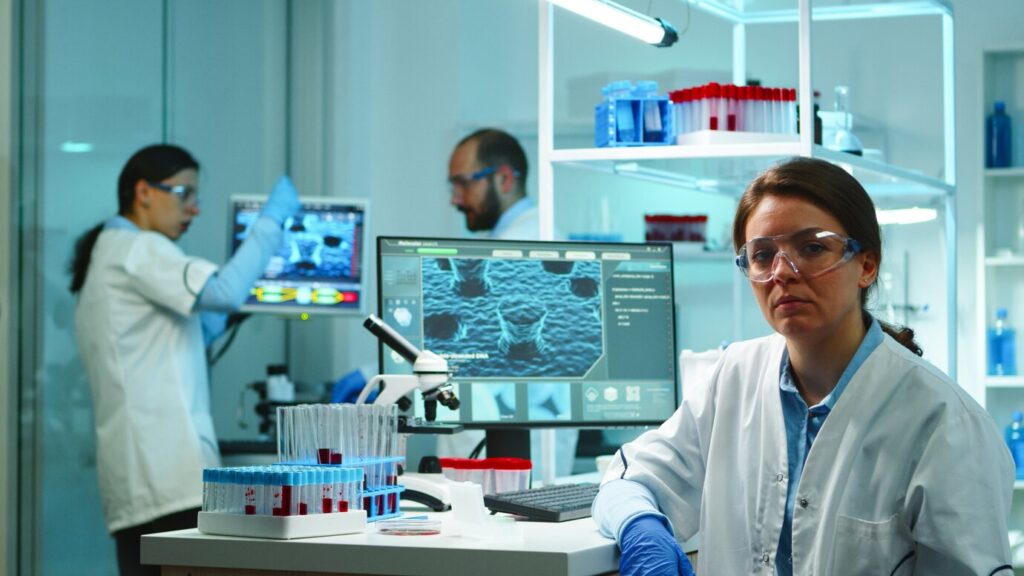My experience with Westfield College is great. The supervisor and the admin team are proactive and efficient.
BSc (Hons) Biomedical Science

BSc (Hons) Biomedical Science
Overview:
Biomedical Science is an exciting, interdisciplinary subject exploring the normal functioning of the human body at the molecular, cellular and whole organism levels and how understanding these processes enables breakthroughs in the treatment of human disease and improvements to health.
Placing significant emphasis on laboratory techniques and scientific communication from writing labs reports, critical evaluation of scientific data and solving research problems, this biomedical science course provides essential skills required for a wide range of scientific careers.
Typical A-Level Offer
CCC to include Biology and one other Science such as Chemistry or Physics but to exclude General Studies (this is equivalent to 96 UCAS tariff points).
Typical Welsh BACC Offer
Pass the Advanced Welsh Baccalaureate Diploma with Grade C in the Skills Challenge Certificate and CC at A Level to include Biology and one other Science such as Chemistry or Physics but to exclude General Studies (this is equivalent to 104-80 UCAS tariff points).
Typical Science Requirements
Applicants taking Science A levels in England will need to pass the practical element alongside achieving the requested grade(s)
Typical BTEC Offer
BTEC Extended Diploma Merit Merit Merit in a relevant subject which must include Biology modules (this is equivalent to 96 UCAS tariff points).
Typical Access to HE Offer
Pass an Access to HE Diploma in Science and obtain a minimum of 96 UCAS tariff points
Additional Requirements
GCSEs: The University normally requires a minimum 5 GCSEs including Mathematics/Numeracy and English at Grade C or Grade 4 or above, or their equivalent, but consideration is given to individual circumstances.
Online application form
Information requested on this form should be completed in as much detail in order to process your application successfully. All fields marked * must be completed.
Apply Now
Entry Requirements
Contextual offers
We may make you a lower offer based on a range of factors, including your background (where you live and the school or college that you attended for example), your experiences and individual circumstances (as a care leaver, for example). This is referred to as a contextual offer and we receive data from UCAS to support us in making these decisions. USW prides itself on its student experience and we support our students to achieve their goals and become a successful graduate. This approach helps us to support students who have the potential to succeed and who may have faced barriers that make it more difficult to access university. Here is a link to our Contextual Admissions Policy.
Other qualifications and experience
We can also consider combinations of qualifications and other qualifications not listed here may also be acceptable. We can sometimes consider credits achieved at other universities and your work/life experience through an assessment of prior learning. This may be for year one entry, or advanced entry to year two or three of a course where this is possible.
To find out which qualifications have tariff points, please refer to the UCAS tariff calculator.
WHAT YOU WILL STUDY
The Biomedical Science course is an ideal choice if you are interested in the scientific basis of how the human body normally functions, how pathological changes can result in disease and how these diseases can be treated.
You will develop laboratory skills in biomedical science, alongside learning to critically evaluate scientific information to communicate this information to a range of different audiences.
Year One: Biomedical Science Degree
The first year of this Biomedical Science degree will introduce you to basic laboratory techniques fundamental to a career in biomedical science, genetics, microbiology, cell biology, anatomy, physiology and biochemistry, human development, and will build a foundation of scientific inquiry.
- Skills and Professional Development 1*
- Human Growth and Development
- Skills for Biomedical Scientists
- Anatomy, Physiology and Biochemistry
- Diversity of Cellular Life
- Genetics and Evolution
*This module can be studied in Welsh.
Year Two: Biomedical Science Degree
In the second year you will build on your knowledge and skills acquired in the first year to gain insight into disease processes and how the human body adapts.
- Skills and Professional Development 2*
- Anatomy, Physiology and Pharmacology
- Microorganisms and disease
- Cellular Pathology and Disease Processes
- Human Molecular Genetics
*This module can be studied in Welsh.
Year Three: Biomedical Science Degree
Your final year is your opportunity to pursue your specialist area of interest by conducting a supervised research project combining all of your acquired knowledge and laboratory skills. You will also be able to choose a module that takes your education in a specialised or emerging path of biomedical or anthropological emphasis.
- Research Project and Career Development
- Global Heath Challenges
- Modern Molecular Advances
- Bench to Bedside
With Biomedical options of:-
- Regenerative Medicine OR
- Applied Forensic Toxicology
Or anthropology option:
- Human Variation
Teaching
You will learn through a combination of lectures, tutorials and practical classes. You will typically spend 15 – 20 hours in scheduled classes per week, and are expected to spend the same amount of time doing background reading and working on assignments.
There is strong emphasis on applied, practical learning throughout each year of the course, which culminates in all students undertaking an extensive project in their final year. A wide range of projects are available from microbiology, cancer biology, reproductive biology and genetics.
Assessment
Assessment methods vary by module and include coursework such as laboratory reports, essays, oral presentations, problem solving and in-class or online tests as well as written examinations.
COURSE DETAILS
We regularly revalidate courses for quality assurance and enhancement
At USW, we regularly review our courses in response to changing patterns of employment and skills demand to ensure we offer learning designed to reflect today’s student needs and tomorrow’s employer demands.
If during a review process course content is significantly changed, we’ll write to inform you and talk you through the changes for the coming year. But whatever the outcome, we aim to equip our students with the skillset and the mindset to succeed whatever tomorrow may bring. Your future, future-proofed.
Additional Costs
As a student of USW, you’ll have access to lots of free resources to support your study and learning, such as textbooks, publications, online journals, laptops, and plenty of remote-access resources. Whilst in most cases these resources are more than sufficient in supporting you with completing your course, additional costs, both obligatory and optional, may be required or requested for the likes of travel, memberships, experience days, stationery, printing, or equipment.
CAREERS
This BSc (Hons) Biomedical Science degree provides the scientific basis for a career in a range of fields, including biomedical research, teaching, and biotechnology industries, as well as postgraduate study (e.g. MSc or PhD). Graduates may also choose to progress to careers in healthcare, for example, as Physicians Associates or working in Public Health.
Fees
Full time
- 12 to 18 months
£7,250
You’ll study 9 modules in total (approx. 37 hrs/week).
Part time option one
- 12 to 18 months
£4,250
You’ll study 6 modules per year (approx. 25 hrs/week).
Part time option two
- 12 to 18 months
£5,500
Have a question about our professional qualifications?

Contact us about our professional qualifications
If you have any questions about our professional qualifications in finance and banking, please contact our customer services team.
Call us
- +44 (0) 203 771 5653
- admissions@westfieldcollege.co.uk
What Our Students Have To Say
Communication in Health and Social Care. Great Course. Very Easy to Understand
--Shariq Niazi
StudentHi, I recently started Access to Higher Education Diploma (Nursing and Midwifery) course with Westfield College.
--Komal Kiran Galaria
DesignerMy experience with Westfield College is great. The supervisor and the admin team are proactive and efficient.
--Oluwaseyi Olubasiri
Content CreatorCommunication in Health and Social Care. Great Course. Very Easy to Understand

